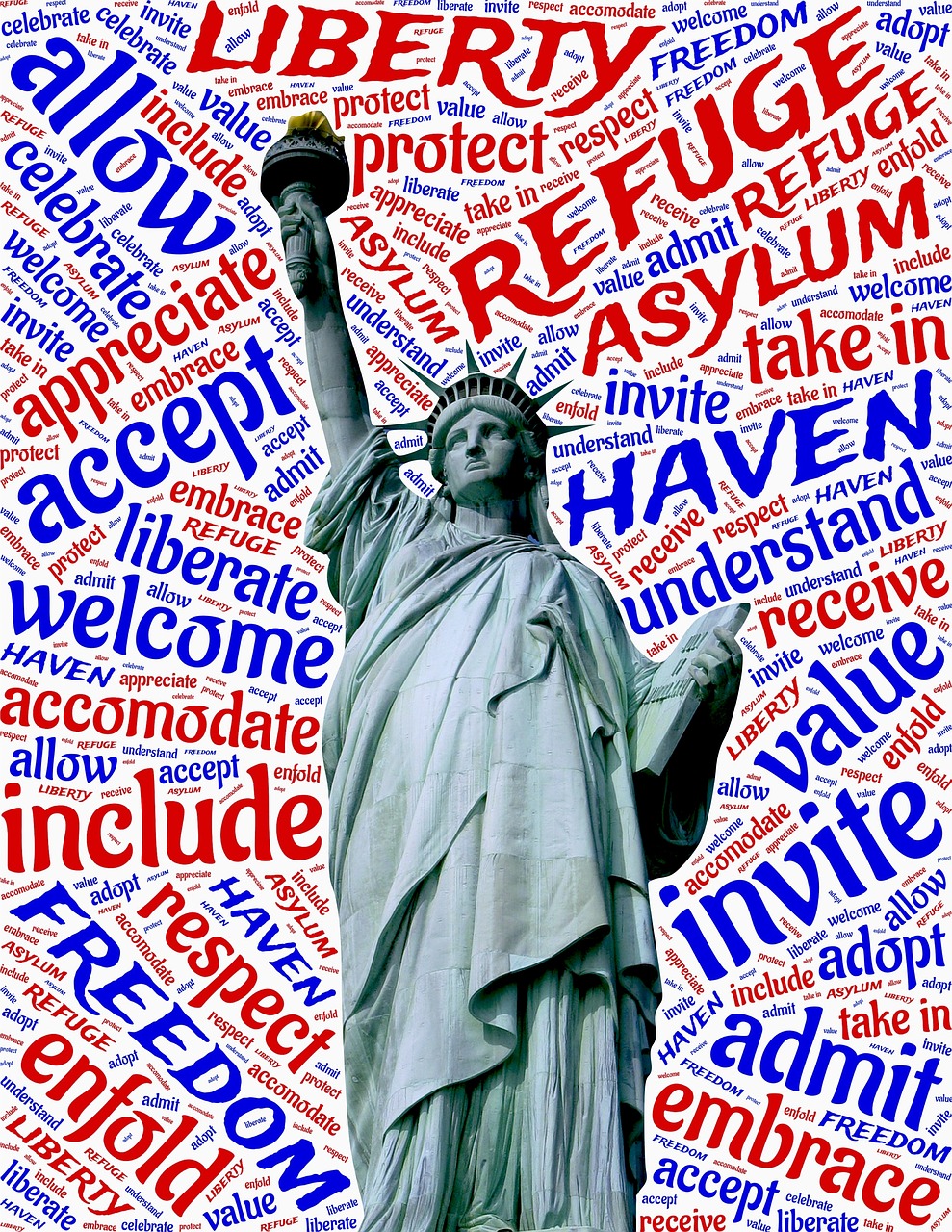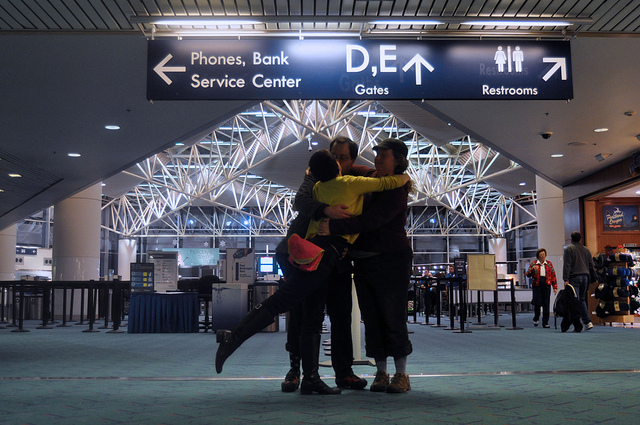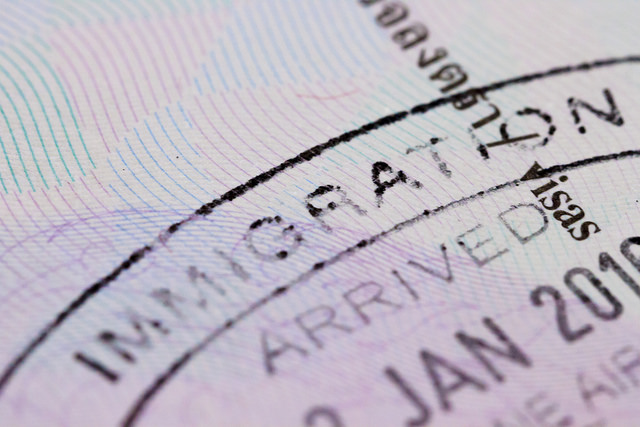Articles Posted in Employment-Based Categories
The End of the International Entrepreneur Rule and H-4 Work Authorization is Imminent
The Trump administration has taken its first step toward dismantling the International Entrepreneur Rule, an Obama era program that would have given thousands of foreign entrepreneurs the opportunity to travel to the United States for a 30-month period, for the purpose of starting or scaling their start-up business enterprise in the United States.
On November 17, 2017, the Trump administration sent a notice to the Office of Management and Budget (OMB) to officially end the International Entrepreneur Rule. This notice appeared on the website of the Office of Information and Regulatory Affairs as early as Friday. At this time, the Trump administration is finalizing a draft to officially rescind the rule. Once the administration has finished reviewing the draft, it will be published in the Federal Register. It is expected that the draft to rescind the rule will be published within the next week.
After publication, a public notice and comment period will follow, as required by the Administrative Procedure Act, a process by which the government invites the public to comment on a proposed version of a government rule published in the Federal Register. Once the comment period has ended, the government responds to comments, considers feedback, and decides whether such feedback will have any influence on their decision to rescind the rule.
USCIS Introduces New Policies to Toughen the renewal process for H-1B visas, and other work visas
Unsurprisingly, this week we learned that the Trump administration is taking further steps to toughen the process of applying for an H-1B visa extension/renewal request, and that of other highly sought-after non-immigrant work visa types filed using Form I-129 Petition for Nonimmigrant Worker such as the H, O, P, L, and R work visas. The news comes as part of the President’s ongoing plan to prioritize the employment of American workers over foreign workers, outlined in the President’s Executive Order “Buy American, Hire American.”
On October 23, 2017, the United States Citizenship and Immigration Services (USCIS) announced that the agency will be updating its adjudication policy “to ensure petitioners meet the burden of proof for a non-immigrant worker extension petition.” The change in policy specifically provides that USCIS officers will “apply the same level of scrutiny to both initial petitions and extension requests” for the H-1B visa as well as other nonimmigrant visa types.
Per USCIS, this policy will now apply to “nearly all non-immigrant classifications filed using Form I-129 Petition for Nonimmigrant Worker.” This means that all nonimmigrant worker visa renewal requests, made using Form I-129, will be subject to the same level of scrutiny that was applied during the foreign worker’s initial non-immigrant work visa request.
National Venture Capital Association Files Lawsuit to Enforce International Entrepreneur Rule
On September 19, 2017, the American Immigration Council in cooperation with Mayer Brown LLP, filed a lawsuit in federal district court on behalf of the National Venture Capital Association (National Venture Capital Association, et.al. v. Duke, et. al.) challenging the President’s postponement of the International Entrepreneur Rule. The Plaintiffs in the lawsuit collectively argue that the United States Department of Homeland Security (DHS), unlawfully delayed enforcement of the International Entrepreneur Rule by circumventing key provisions of the Administrative Procedure Act.
In order for a federal rule to become effective, the Act requires federal agencies to abide by a notice-and-comment rule making procedure, a process by which the government invites the public to comment on a proposed version of a government rule published in the Federal Register. After the comment period has ended, the government responds to comments, considers feedback, and decides whether such feedback will have any influence on the content of the rules. The Supreme Court has ruled that the notice-and-comment procedure is required for “legislative” or “substantive” rules that intend to “bind” the public, and that similar to a statute, these types of rules have the “force and effect” of law. The notice-and-comment rule making requirement, however does not apply to interpretive rules, which are rules that do not bind the public or have the “force” of law in the same way that legislative or substantive rules do. The National Venture Capital Association argues that the government unlawfully invoked the “good cause” exception of the APA to postpone the Rule, and that the Rule was unlawfully halted under the pretext that doing so would prevent harm to the public interest, when no emergency situation existed which would allow such a delay.
The International Entrepreneur Rule was first published in the Federal Register on January 17, 2017, and the notice-and-comment period was set to begin 30 days from the date of the rule’s publication in the federal register. However, the government never announced a comment period for the Rule. On July 13, 2017, the Department of Homeland Security announced that the implementation of the rule would be delayed to March 14, 2018, at which time the government would seek comments from the public, with a plan to rescind the rule.
Debunking Common Immigration Law Myths
Given the recent termination of the Deferred Action for Childhood Arrivals (DACA) program and the controversy surrounding the immigration system as of late, in this post we address the numerous myths surrounding the DACA program and of immigration law in general. Although there are numerous studies and empirical research debunking the common myths attributed to the immigration system, as well as detailed economic reports published by governmental agencies corroborating the positive effects of immigration, Americans continue to hold a negative perception of immigrants and are increasingly skeptical of the immigration process. In truth, much of these perceptions are perpetuated by the unwillingness of Americans to obtain readily available information on the internet, to discover that the immigration process for individuals who entered the United States illegally is riddled with obstacles. More and more we are seeing Americans rely on news stations to accurately deliver the news and do the work for them. Unfortunately, the best way to understand the immigration process itself is to go straight to the source, and not rely on such sources for information.
The public needs to know the facts to better understand that the average immigrant actually has very few immigration options available to them under the current immigration system.
MYTH #1 It is easy to get a green card under current immigration laws
Most Americans believe that it is relatively easy to get a green card. This cannot be further from the truth. Immigration laws are highly complex and are designed to make it more difficult for extended family members, low-skilled workers, and undocumented immigrants to immigrate to the United States. Under current immigration laws, there are generally only two ways to immigrate to the United States and obtain permanent residency, outside of special immigrant categories specifically reserved for special categories of individuals including: asylees, refugees, certain witnesses of crimes, victims of abuse, and individuals who may qualify for withholding of removal. It is extremely difficult for individuals to qualify for permanent residency under one of these special categories.
Outside of these special categories, foreign nationals may immigrate to the United States and obtain permanent residency, only if they have a qualifying family member (such as a US Citizen or LPR spouse, child, etc.) who may petition for them or if the beneficiary works for a U.S. employer on a valid visa who is willing to sponsor the foreign national by petitioning for their permanent residency.
Trump Administration to Mandate In-Person Interviews for Employment-Based LPR Applicants Causing Delays in Green Card Processing

Now is a good time to file your green card application. Significant wait times are expected given a new policy passed by the Trump administration that will require in-person interviews for LPR applicants filing based on employment sponsorship
In yet another controversial move, the Trump administration has recently adopted a new policy change that will require an in-person interview for individuals wishing to obtain lawful permanent residency based on employment sponsorship. The new policy will be implemented beginning October 1st.
Previously, foreign nationals applying for permanent residency, based on employment sponsorship, were not required to attend an in-person interview, although this allowance was discretionary. In recent years, the in-person interview requirement was typically reserved for individuals applying for permanent residency based on a qualifying familial relationship, and not for individuals applying based on employment sponsorship.
A USCIS spokesperson announced the new policy change on Friday August 25th, a change that will delay the process of obtaining a green card significantly, given the increased number of individuals that will be required to attend an in-person interview. According to USCIS this change in policy will apply to any individual adjusting their status to legal permanent residency from an employment-based visa category.
What’s more, family members of refugees or asylees, holding a valid U.S. visa, will also be required to attend an in-person interview when applying for provisional status.
October Visa Bulletin: What to Expect and Visa Projections with Charles Oppenheim
In this post, we would like to keep our readers informed about Visa Bulletin projections for the month of October. Charles Oppenheim, Chief of the Visa Control and Reporting Division of the U.S. Department of State provides a monthly analysis of each month’s Visa Bulletin including discussion of current trends and future projections for immigrant preference categories.
Below are the highlights of those trends and projections:
Check-in with DOS’s Charlie Oppenheim: October 2017
EB-1 China and EB-1 India. Good news for EB-1 China and EB-1 India. Both employment categories are expected to become current in the month of October. The imposition of a final action date is expected until the summer of 2018.
EB-2 Worldwide. Similarly, EB-2 Worldwide is expected to become current beginning October 1, 2017 through to the foreseeable future.
EB-2 India. EB-2 India is experiencing and will continue to experience slow movement of a few weeks at a time. A final action date may be expected between January and April 2018. If a final action date is imposed EB-2 India will advance to a date in December 2008. This will largely depend on the level of EB-3 upgrade demand. Alternatively, it is possible for the final action date for this category to advance to a date in 2009 during the second half of fiscal year 2018.
Answering Your Frequently Asked Questions
You have questions, we have your answers. Here are answers to 6 of your Frequently Asked Questions.
In this blog, we are answering 6 of your frequently asked questions in detail. Please remember that every case and every story is different and unique. You should not compare your situation to anyone else’s. We hope that our answers will provide you with further guidance on your immigration journey. For any further questions please visit our website or call our office for a free first time legal consultation. We thank you for your continued trust in our law office.
Q: Should I hire an attorney to file my green card application and go with me to the green card interview?
This will largely depend on the complexity of your individual case. For example, there are individuals that are eligible to adjust their status to permanent residence based on their marriage to a U.S. Citizen or based on a qualifying family relationship, but may be applying for permanent residence under special circumstances such as 245i or another special immigrant classification such as VAWA.
Still other individuals may be applying for their green card for a second time after being denied.
Individuals who are applying for their green card under one of these special immigrant classifications should absolutely seek the assistance of an immigration attorney to apply for permanent residence to avoid any mistakes in filing and to be well prepared for the green card interview. In these situations, any minor mistakes on the paperwork can result in major delays, or worse—require refiling the green card application altogether. In addition, for complex cases it is always important for an attorney to prepare the foreign national for the most vital part of the green card application which is the green card interview. An attorney’s presence at the green card interview is also important to ensure that the foreign national’s rights are not violated by the immigration officer.
GOP Senators Introduce RAISE Act to Slash Immigration in Half
On August 02, 2017, Republican Senators Tom Cotton (R-AR) and David Perdue (R-GA) introduced a new Act called “Reforming American Immigration for a Strong Economy” before the U.S. Senate, otherwise known as the RAISE Act, which is a new piece of legislation that has recently been backed by President Trump.
The RAISE Act aims to overhaul the employment-based immigration system and replace it with a skills-based system that awards points to immigrants based on the immigrant’s level of education, age, ability to speak the English language, future job salary, level of investment, and professional achievements. In addition, the RAISE Act would terminate the Diversity Visa Program, which awards 50,000 visas to foreign nationals from qualifying countries, and would ultimately reduce the number of family-sponsored immigrants allowed admission to the United States. The Act intends to focus on the family-based immigration of spouses and minor children and would reduce the number of refugees allowed into the United States.
Among other things the RAISE Act would:
- Terminate the Diversity Visa Program which awards 50,000 green cards to immigrants from qualifying countries;
- Slash the annual distribution of green cards to just over 500,000 (a change from the current issuance of over 1 million green cards annually);
- Employment-based green cards would be awarded according to a skill-based points system that ranks applicants according to their level of education, age, ability to speak the English language, salary, level of investment, and achievements (see below);
- The issuance of employment-based green cards would be capped at 140,000 annually;
- Limit the maximum number of refugees admitted to the United States to 50,000;
- Limit admission of asylees. The number of asylees admitted to the United States on any given year would be set by the President on an annual basis;
- Amend the definition of “Immediate Relative” to an individual who is younger than 18 years of age instead of an individual who is younger than 21 years of age;
- Adult children and extended family members of individuals living in the United States would no longer be prioritized to receive permanent residence. Instead the focus would remain on the immediate relatives of U.S. Citizens and legal permanent residents such as spouses and children under the age of 18;
- The Act would allow sick parents of U.S. Citizens to be allowed to enter the United States on a renewable five-year visa, provided the U.S. Citizen would be financially responsible for the sick parent.
Upcoming Visa Bulletin: Current Trends and Future Projections
On June 13, 2017, the American Immigration Lawyers Association (AILA) spoke with Charles Oppenheim, the Chief of the Visa Control and Reporting Division for the U.S. Department of State, to discuss current trends trends and future projections for various employment and family preference categories.
Family preference and employment immigrant categories are subject to numerical limitations and are divided by preference systems and priority dates on the Visa Bulletin. Family-sponsored preference categories are limited to a minimum of 226,000 visas per year, while employment-based preference categories are limited to a minimum of 140,000 visas per year. The Visa Bulletin is a useful tool for aliens to determine when a visa will become available to them so that they may apply for permanent residence. Applicants who fall under family preference or employment categories must wait in line until a visa becomes available to them in order to proceed with their immigrant visa applications. Once the immigrant’s priority date becomes current, per the Visa Bulletin, the applicant can proceed with their immigrant visa application.
Current Trends & Future Projections:
Employment-based preference categories:
EB-1 China and India:
The final action date imposed on EB-1 China and EB-1 India (January 1, 2012) during the month of June of 2017, will remain and is expected to remain through the end of this fiscal year.
Per Charles Oppenheim, “Due to the availability (through May) of “otherwise unused numbers” in these categories, EB-1 China has used more than 6,300 numbers and EB-1 India has used more than 12,900 so far this fiscal year.”
EB-2 Worldwide:
Good news! EB-2 Worldwide remains current due to a slight decrease in demand in the second half of May and a steady level of demand in the month of June.
Projection: Oppenheim expects a final action cutoff date to be imposed on this category in August which is expected to be significant, however this category is expected to become current again on October 1, 2017.
 Visa Lawyer Blog
Visa Lawyer Blog












